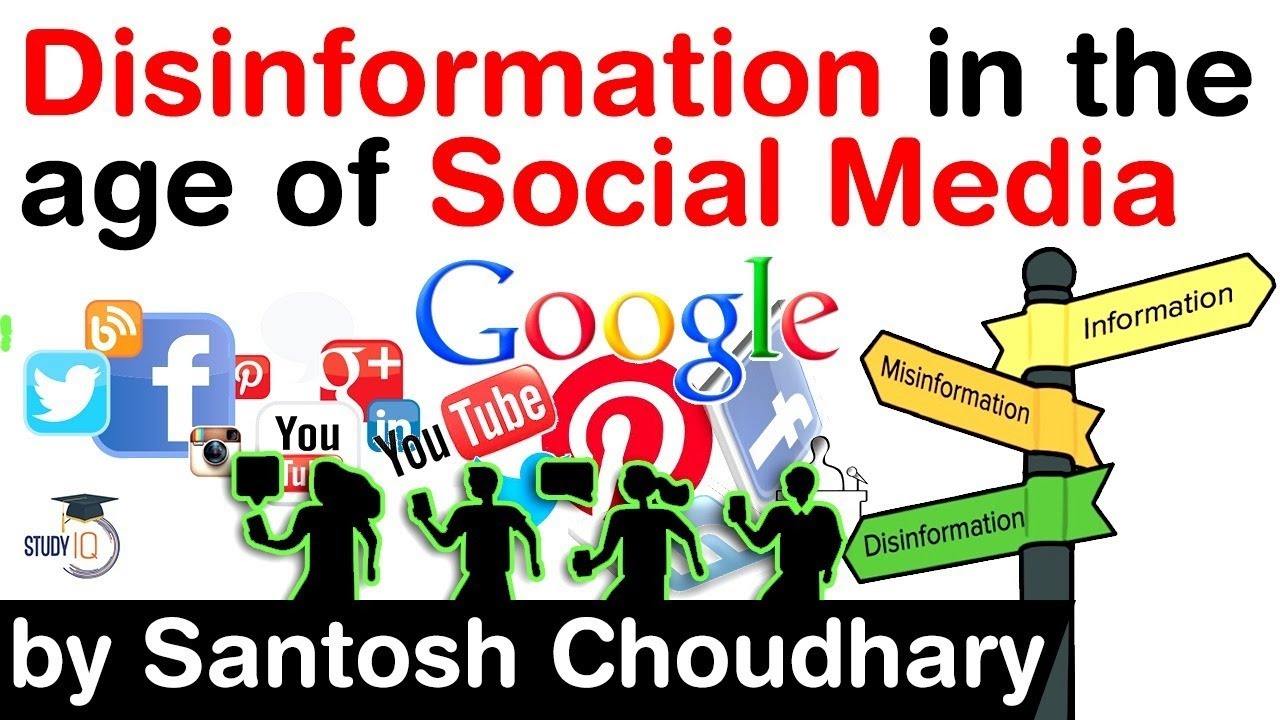The Impact Of Disinformation And Propaganda On News And Society
The impact of disinformation and propaganda on news and society has serious consequences for democracy. These tactics have been spread through a variety of channels, including social media and personal interactions.
Apr 10, 20231.4K Shares184.1K Views

In recent years, the rise of disinformation and propaganda has had a profound impact on news and society. Disinformation refers to the spread of false or misleading information, while propaganda refers to the deliberate manipulation of information to influence public opinion.
These tactics have been used throughout history, but advances in technology and the proliferation of social media have made them more powerful than ever before.
In this article, we will examinethe impact of disinformation and propaganda on news and society, including how they spread, their effects on democracy, and what can be done to combat them.
How Disinformation And Propaganda Spread
Disinformation and propaganda are spread through a variety of channels, including traditional media, social media, and personal interactions.
Traditional media outlets, such as newspapers and television news, have historically been trusted sources of information, but the rise of alternative media and the decline of traditional media has led to a proliferation of false or misleading information.
Social media platforms like Facebook and Twitter have also played a major role in spreading disinformation and propaganda, as users can easily share and amplify false information to their followers.
Additionally, personal interactions, such as conversations with friends and family, can also spread false information and reinforce existing beliefs.
The Effects Of Disinformation And Propaganda On Democracy
Disinformation and propaganda can have serious consequences for democracy. When false information is spread, it can undermine the public's trust in institutions and create confusion about important issues.
This can lead to a polarized society, with individuals on opposite sides of an issue holding vastly different beliefs. In extreme cases, this can lead to political instability, as individuals become more entrenched in their beliefs and are unwilling to compromise or work together.
Furthermore, disinformation and propaganda can be used to manipulate public opinion and influence the outcomes of elections. In some cases, foreign actors have used disinformation campaigns to sow discord and influence election outcomes in other countries.
In the United States, the 2016 presidential election was marred by allegations of foreign interference and the spread of false information.
These tactics can be especially effective when targeted at vulnerable populations, such as those with limited access to reliable information or those who are already distrustful of government institutions.
What Can Be Done To Combat Disinformation And Propaganda
Combating disinformation and propaganda is a complex issue, but several steps can be taken to mitigate their impact. First, media literacy education can help individuals recognize and evaluate false information. This education can be provided in schools, community centers, and other public forums.
Second, social media platforms can take steps to prevent the spread of false information, such as by fact-checking posts and removing those that violate community standards.
Third, traditional media outlets can work to rebuild trust with the public by providing accurate and unbiased reporting.
Additionally, government institutions can take steps to combat disinformation and propaganda, such as by investing in cybersecurity and working with foreign governments to prevent interference in democratic processes.
The private sector can also play a role by investing in the research and development of new technologies to detect and prevent the spread of false information.

Fake News on Social Media - Difference in Disinformation, Misinformation & Malinformation explained
The Impact Of Disinformation And Propaganda On News And Society
In recent years, the rise of disinformation and propaganda has had a profound impact on news and society. Disinformation refers to the spread of false or misleading information, while propaganda refers to the deliberate manipulation of information to influence public opinion.
These tactics have been used throughout history, but advances in technology and the proliferation of social media have made them more powerful than ever before.
One of the most significant impacts of disinformation and propaganda on news and society is their ability to spread rapidly and widely.
Social media platforms like Facebook, Twitter, and YouTube have created an environment in which false information can be shared and amplified at an unprecedented scale.
Additionally, the rise of alternative media and the decline of traditional media has led to a proliferation of false or misleading information.
The effects of disinformation and propaganda on democracy are also concerning. When false information is spread, it can undermine the public's trust in institutions and create confusion about important issues.
This can lead to a polarized society, with individuals on opposite sides of an issue holding vastly different beliefs. In extreme cases, this can lead to political instability, as individuals become more entrenched in their beliefs and are unwilling to compromise or work together.
People Also Ask
What Is Disinformation?
Disinformation refers to the spread of false or misleading information.
How Has Social Media Affected The Spread Of Disinformation And Propaganda?
Social media has created an environment in which false information can be shared and amplified at an unprecedented scale.
What Impact Can Disinformation And Propaganda Have On Democracy?
Disinformation and propaganda can undermine the public's trust in institutions and create confusion about important issues, leading to a polarized society and potential political instability.
What Are Some Consequences Of Foreign Interference In Democratic Processes Through Disinformation And Propaganda?
Foreign interference can sow discord and influence election outcomes, especially when targeted at vulnerable populations, such as those with limited access to reliable information or those who are already distrustful of government institutions.
Conclusion
The impact of disinformation and propaganda on news and society has serious consequences for democracy. These tactics have been spread through a variety of channels, including social media and personal interactions.
Combatting disinformation and propaganda is a complex issue, but education, media regulation, and investment in new technologies are all important steps that can be taken to mitigate their impact.
Individuals, governments, and the private sector must work together to address this growing threat to democracy and society as a whole. Only by working together can we ensure that accurate and reliable information remains the cornerstone of a healthy democracy.
Latest Articles
Popular Articles
